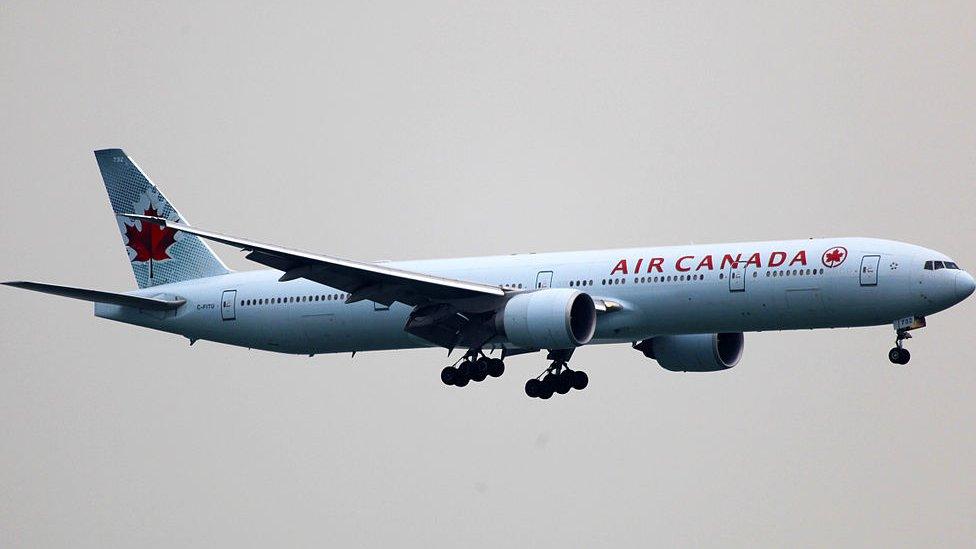SpiceJet: The glitches plaguing low-cost Indian airline
- Published
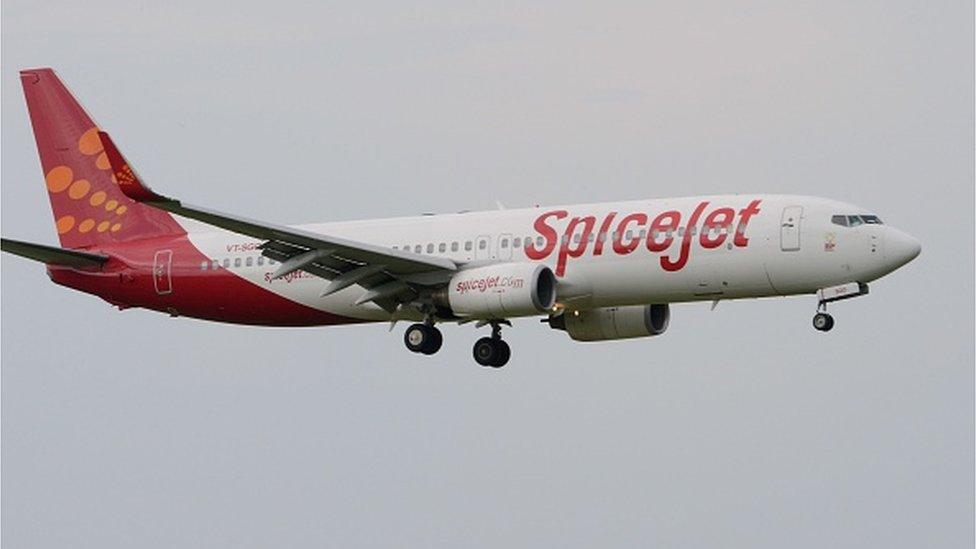
SpiceJet is a leading Indian private carrier
Shubhi Sharma remembers feeling the excitement rise in her throat as the aircraft lumbered down the runaway in the Indian capital, Delhi, and lifted into the air.
It had been a long few weeks and she was looking forward to spending time with her cousin in Dubai, the 31-year-old teacher says.
But less than an hour into the journey, the plane took the detour of her life, she says.
Ms Sharma was among 138 passengers onboard a SpiceJet flight that was forced to make an emergency landing in the neighbouring Pakistani city of Karachi on 5 July following a snag in its fuel system.
"We were made to sit in the aircraft for five hours. There was no network so we couldn't contact our family," she says.
Finally some officers came and escorted the passengers to the airport lounge where Ms Sharma spent another six hours "just waiting anxiously for help" till the airline arranged for another aircraft.
"By the time I reached Dubai - 12 hours late - I was too exhausted to do anything," she says. "But I did do one thing. I cancelled my return tickets with the airline."
On the same day, two other snags were reported on SpiceJet flights - one suffered a cracked windshield, but landed safely; and the other had to turn back after a glitch in the weather radar of the aircraft.
The incidents have revived concerns about the reliability of the airline, and has prompted India's aviation regulator to issue a stern notice about its "poor internal safety oversight and inadequate maintenance actions" which it said had "resulted in degradation of safety margins".
The air carrier denied the allegations and said that it was committed to safety and that similar incidents have been happening with all domestic airlines. "All our aircraft were audited only a month back and found to be absolutely safe," a spokesperson told the BBC.
Allow X content?
This article contains content provided by X. We ask for your permission before anything is loaded, as they may be using cookies and other technologies. You may want to read X’s cookie policy, external and privacy policy, external before accepting. To view this content choose ‘accept and continue’.
One of India's top five domestic carriers, SpiceJet has been plagued with an unusually high number snags as compared to other airlines in recent months. Between 20 June and 8 July, the airline has reported at least eight incidents of technical malfunction.
The regulator says that it has been observed that at a number of occasions, aircrafts "either turned back to its originating station or continued landing at the destination with degraded safety margins".
On 18 July, the Delhi high court dismissed a petition by a lawyer seeking to stop the airline's services over safety concerns. The matter didn't fall in their domain, the judges said..
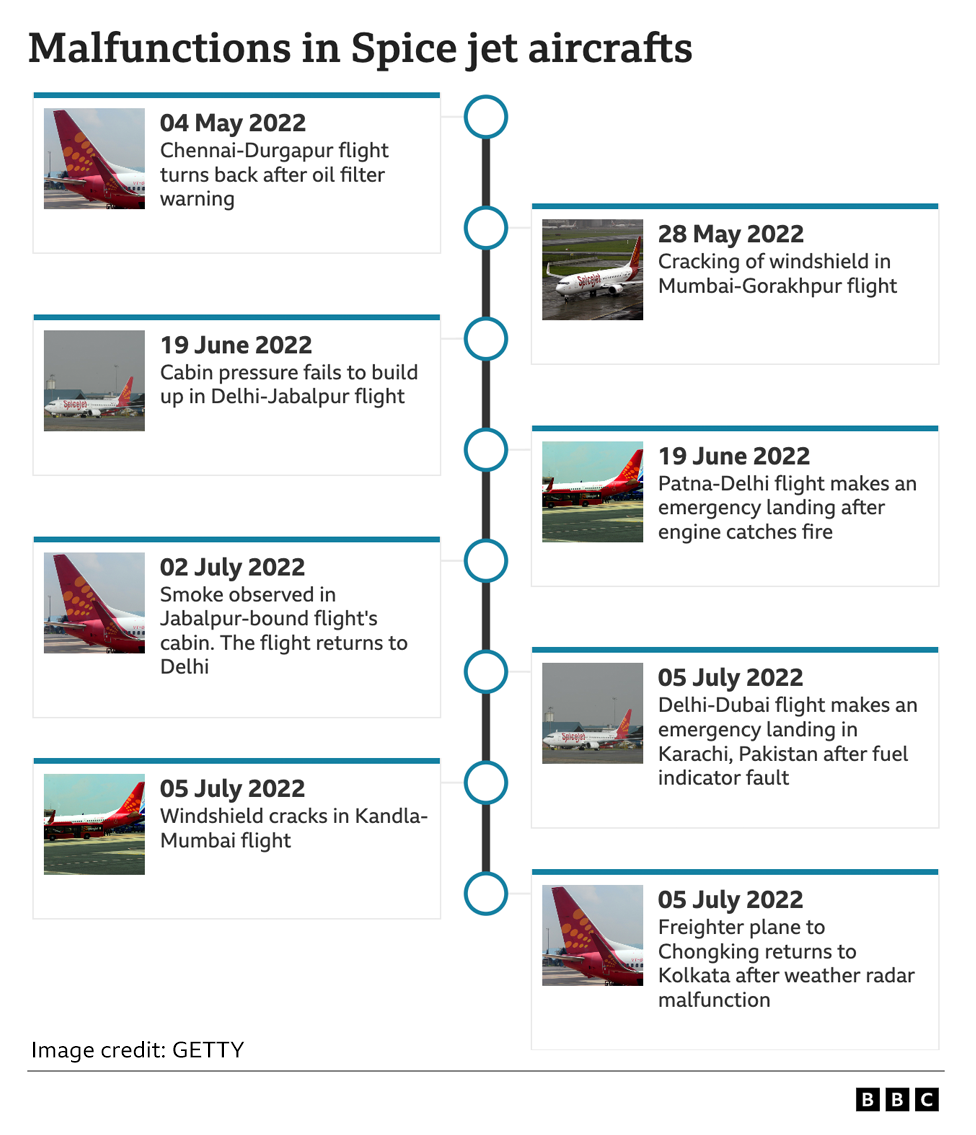
Some of the technical malfunctions reported in SpiceJet flights since May
Still, even with all of the headaches, including a mounting financial crisis, SpiceJet managed to survive - mostly on the back of its low-cost pricing - and it seemed like the problems were unlikely to burnish the image of the troubled airline.
Until now.
After the incident on 5 July, shares of the company fell 7% to hit a one-year low. Frightened passengers are unwilling to fly on the plane and some have even cancelled their travel plans. Many are demanding the airline should be grounded before "something worse happens, external", while others are imploring friends to "resist the temptation, external" to book the low-cost airline. SpiceJet, however, maintains that the airline actively deals with all complaints and that its consumer satisfaction rate is high.
The incident has also raised questions about India's oversight of its rapidly growing aviation industry.
The Director General of Civil Aviation Arun Kumar told the BBC that the regulatory body was "doing everything possible to ensure that flight safety is not compromised".
"Every airline across the world has maintenance issues - what's disturbing about SpiceJet though is the frequency of such events. We are looking into it and have held meetings with the airline to discuss the action plan," he says. The regulator has given the air carrier three weeks to offer a defence.
But aviation experts are not convinced - they say such errors are compounded by India's safety inspection regime which has been lax in pulling up air carriers for their mistakes. Although the country has had few major crashes in recent years, safety and maintenance-related problems have been increasing, they say.
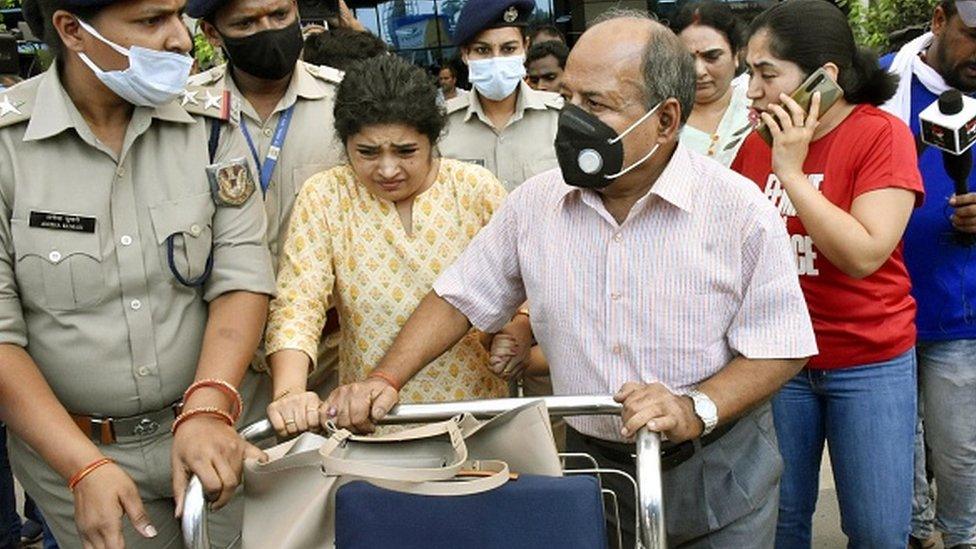
Social media is flooded with complaints about SpiceJet's services
"If the DGCA says that safety of passengers is paramount, the first thing they should do is ground the airline. Why haven't they?" aviation expert Mohan Ranganathan asks.
The regulator, Mr Ranganathan alleges, is giving SpiceJet a long rope. "The audit finding quoted in the notice took place six months back," he says. "This means that the DGCA were aware that SpiceJet is operating under degraded safety margins and is having a string of maintenance issues. So why are they giving the airline more time?"
Mr Kumar denies the allegations, saying they cannot "just ground flights overnight without any due processes" and that the situation is "not that alarming or earth-shaking".
"The easiest option is to shut down everything but we can't do that, can we?"
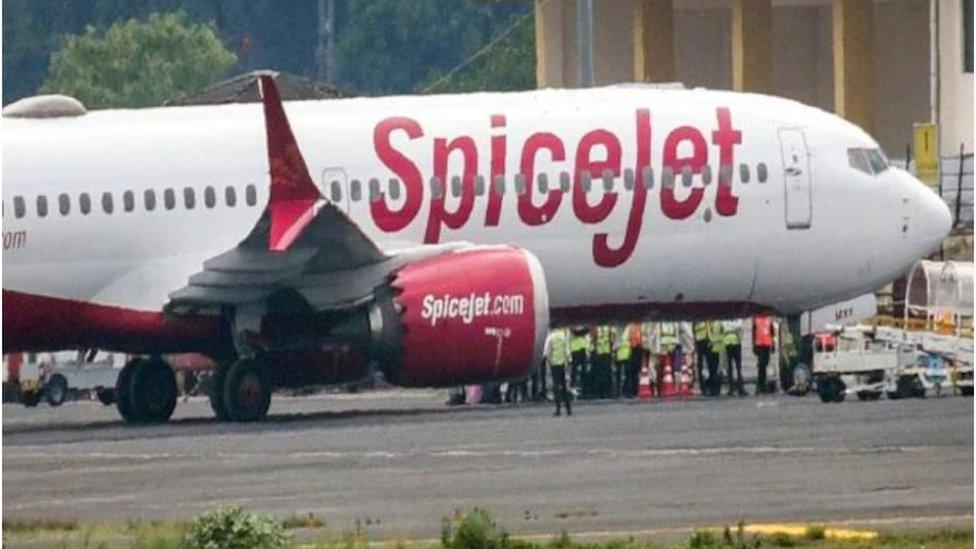
In May, a SpiceJet flight had to make an emergency landing in Patna after it caught fire mid-air
SpiceJet was brought back from the brink of bankruptcy in 2014 by its co-founder Ajay Singh. But after a glorious few years - a prominent daily in 2017 described its growth as a "fairy-tale turnaround", external - the air carrier faced a severe cash crunch.
It suffered heavy losses during the pandemic and struggled to keep paying crew salaries and other bills, causing its auditor to declare "material uncertainty" over the company's future.
Mr Ranganathan claims that the struggle to stay afloat has further hollowed out its safety processes.
"When airlines are pressed for cash, they often take a good component from one aircraft and put it on another to cut costs. Sometimes, they even ask pilots to not report snags, who then oblige out of the fear of losing their job," Mr Ranganathan says.
In its notice, the DGCA stated that a monetary evaluation of SpiceJet in September revealed the service had been late paying suppliers, "leading to a shortage of spares".
A SpiceJet spokesperson denied the allegations as "absolutely wrong, baseless and misleading" and said the airline does not compromise on safety and airworthiness.
"All spares required for operations are managed through our third party service providers (audited and approved by) on routine basis, under our various contracts. And all key departments are adequately funded and all partners and vendors are being paid as per mutually agreed timelines." the spokesperson told the BBC.
The airline added that "not even a single pilot had been threatened or intimidated" and that its employees have been a "very active reporting of such issues internally".
While SpiceJet is in the news, it is only one of several Indian airlines that have faced grave safety issues recently. In the last two days alone, two other airlines have reported safety failures.
Mr Ranganathan says the onus lies on the DGCA to investigate such snags properly, but Mr Kumar says that not "every incident warrants an action"and that the regulator "was doing everything necessary".
Passengers like Ms Sharma say it's the airline which should be held accountable.
"We just want to feel safe."
Related topics
- Published3 May 2022
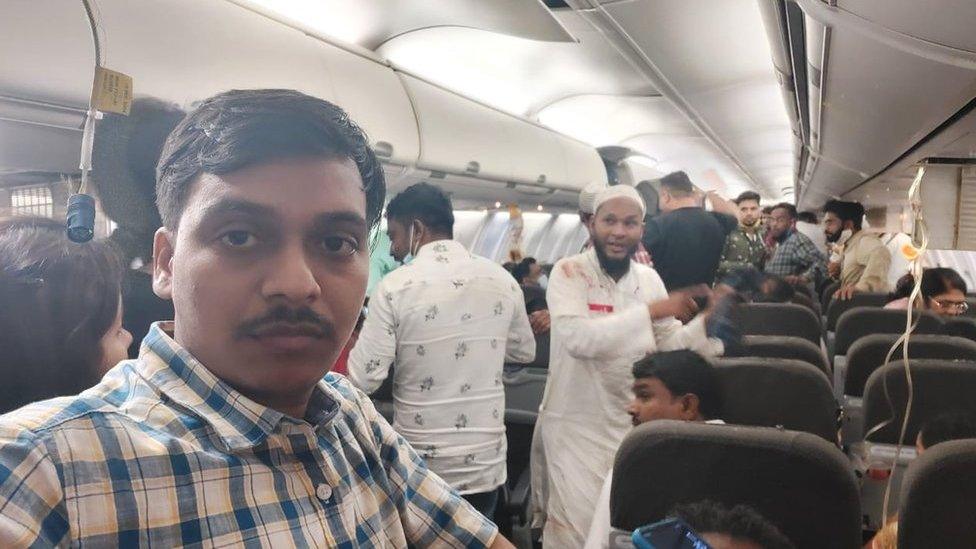
- Published31 December 2015
